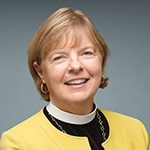By Melody Meeter
Last week I told about a congregant’s close emotional connection to the Psalms and to David, who was, in her mind, The Psalmist.
This week and next I want to reflect on the Revised Common Lectionary texts in 1st and 2nd Samuel (May 31-through August 12). Although I love the Gospel text for this week (the healing of the woman who had been suffering from hemorrhages for twelve years and the raising of Jairus’s twelve year old daughter, Mark 5:21-43),
Violence in the text and violence in the world
I’m drawn to the Samuel texts as mirrors of the violence that is so much with us–around the world, at our borders, and in our neighborhoods.
Last week someone was brought into our hospital whose arm had been hacked off. On the same day I met a 19 year old whose face and neck had been slashed open in a fight. Reading 1 and 2 Samuel is like watching old war movies, or the news, or going to work. But I’m hoping for some light here.
This week’s text records the deaths of Saul and Jonathan (2 Samuel 1: 1, 17-27) and David’s memorial to them: “David intoned this lamentation over Saul and his son Jonathan.”
Three times in this passage we hear the phrase that is still in idiomatic use: “How the mighty have fallen…” David praises Saul and Jonathan together, as is their proper due as war heroes, although Saul was his enemy and Jonathan his “greatly beloved.”
The funeral is humming along according to script, equal praise for both parties, when the liturgy cracks open and David cries out, “I am distressed for you, my brother Jonathan; greatly beloved were you to me; your love to me was wonderful, passing the love of women.”
This doesn’t prove, as I have heard it argued, that Jonathan and David were gay, though it’s not unreasonable to think so. And it does make me think, this week, of Justice Kennedy’s US Supreme Court Obergefell opinion supporting gay marriage, quoted on the radio and everywhere else, from which I quote this line: “As some of the petitioners in these cases demonstrate, marriage embodies a love that may endure even past death.” Beyond gender and even beyond marriage it is in our creaturely capacity to love even past death.
There’s a little light for you. I think, too, how Jesus characterized his love for us, to the end and beyond: “I have called you friends” (John 15:15).
Weep, daughters…and sons?
In the same passage I was struck by David’s injunction to the women mourners: “O daughters of Israel, weep over Saul, who clothed you with crimson, in luxury, who put ornaments of gold on your apparel.”
This seems unfair to women, implying that wars are fought so we can have nice clothes. Men, after all, like consumer goods as much as women do. Women, of course, were the designated mourners at funerals but it would have been nice if David had said “O sons and daughters, weep over Saul…”
The truth is that we are all complicit in violence and war. This is not facile liberal guilt. Weren’t we asked to keep shopping after 9/11 to keep our economy strong? And don’t all of us fear what would happen if our borders were completely open, which is probably what Jesus would suggest?
How do we respond to violence? Where do we go with our grief? What is this passage calling you to be or do this week? Let me send you back to Lynn Japinga’s post here on The Twelve on 1 Samuel 25 (January 7, 2018) which is a reflection on Nabal’s wife Abigail and her response to the threat of violence—from King David. The same David who shows so much love and grief in today’s passage. Lynn’s post concludes with a beautiful meditation on the ways that a “soft answer turneth away wrath.”
Also, pray through Psalm 130, this week’s Psalm, to feel the grief as you wait for the Lord and remember that in everything there is God’s forgiveness and steadfast love. Listen to some variation of Luther’s hymn Aus tiefer Not (Out of the Depths, I Cry to Thee).
Finally, maybe, don’t go shopping for clothes this week, just for your daily bread.

